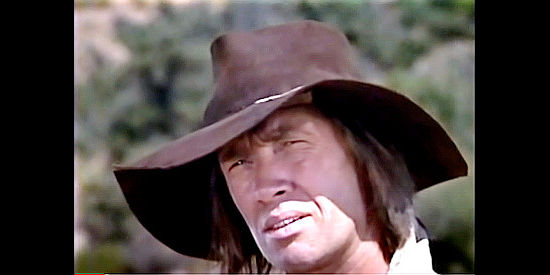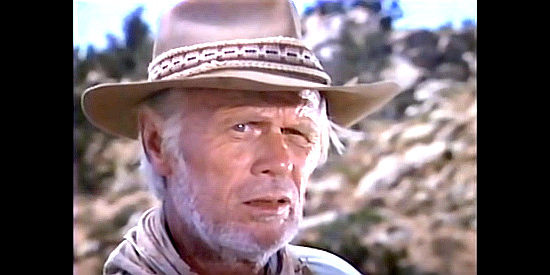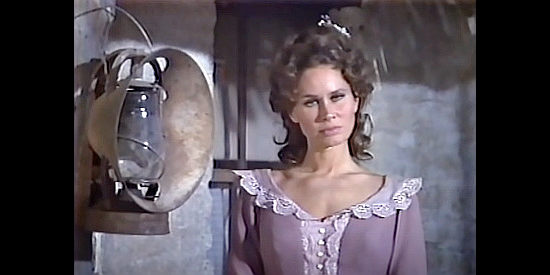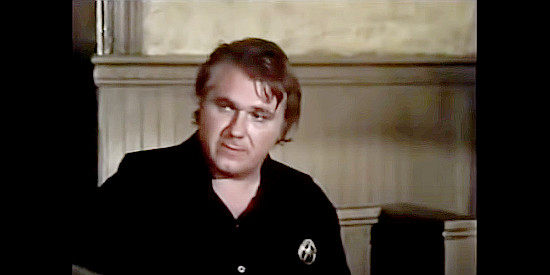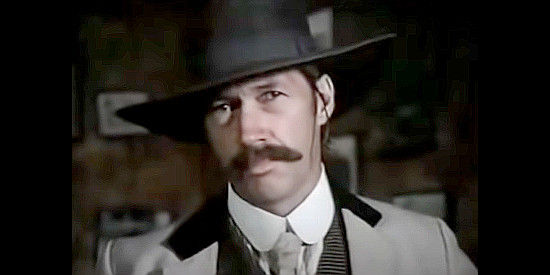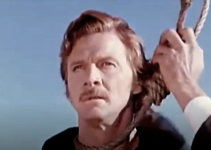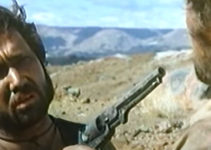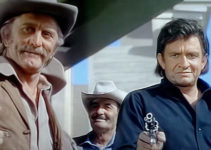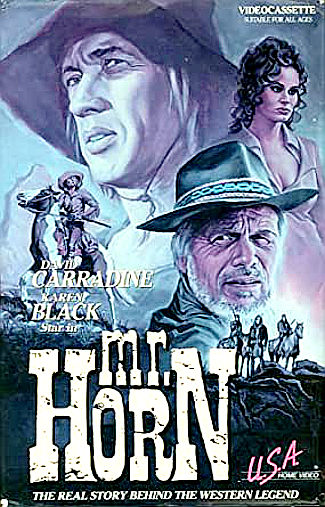 David Carradine is Tom Horn, a cowboy and drifter until Al Sieber (Richard Widmark) recruits him as an Apache scout.
David Carradine is Tom Horn, a cowboy and drifter until Al Sieber (Richard Widmark) recruits him as an Apache scout.
Horn had never fought Indians, but learns quickly and becomes Sieber’s favorite sidekick after showing his bravery when a cavalry troop they’re traveling with is ambushed.
Then Gen. George Crook, having failed to capture Geronimo, is relieved of command and replaced with Gen. Nelson Miles.
Miles, in turn, relieves all the Indian scouts of their duties, believing his new-fangled heliographs will be all he needs to track the movement of the Apaches.
He winds up being wrong, of course. And he lures Sieber and Horn back into service after they’ve tried their luck as miners.
This time around, Horn’s relentless pursuit of Geronimo and his small band of warriors pays off. The famed chief agrees to surrender after Horn promises he’ll be allowed to remain in Arizona.
Miles takes credit for the accomplishment. And feels no obligation to live up to Horn’s word.
Flash forward 15 years and Horn — having spent time as a lawman and Pinkerton agent — arrives in Cheyenne, Wyoming.
Absentee ranchers there are being robbed blind by rustlers. The law hasn’t been able to address the problem.
So John Noble, leader of the group, offers Horn $700 per rustler he eliminates.
Horn sets about his new job with deadly proficiency. Until a youngster is shot dead and found with Horn’s trademark rock under his head.
This aired as a three-hour, two-part TV movie one year before the feature film “Tom Horn,” starring Steve McQueen, was released in the spring of 1980.
Unfortunately, it’s a rather drab story of Tom Horn’s life. Look, it’s tough to put a happy spin on his end. But did the entire film require the same downbeat tone?
The first half of the film deals with Horn’s role in the Apache wars. The second half deals with his time in Cheyenne.
That second half winds up being more interesting than the first. Horn was warned that the ranchers who hired him would deny ever doing so. He soon discovers they feel no loyalty to him.
Richard Widmark has the best role as oft-wounded head scout Al Sieber, who isn’t shy about voicing his opinion when he doesn’t agree with the Army.
Karen Black plays the daughter of an officer slain by Apaches and Horn’s love interest, though it’s difficult to understand what she sees in him.
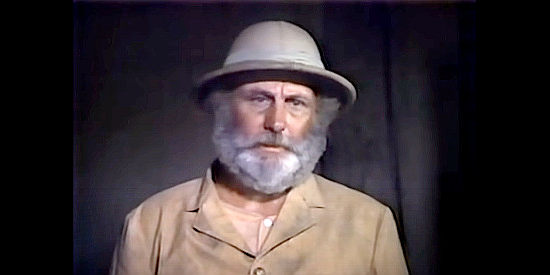
Jack Starrett as Gen. George Crook, realizing his military future depends on capturing Geronimo in Mr. Horn (1979)
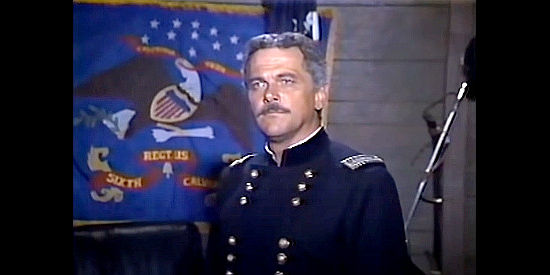
Stafford Morgan as Gen. Nelson Miles, whose plans for catching Geronimo doesn’t include Army scouts in Mr. Horn (1979)
Directed by:
Jack Starrett
Cast:
David Carradine … Tom Horn
Richard Widmark … Al Sieber
Karen Black … Ernestina Crawford
Richard Masur … Sherif Ed Smalley
Clay Tanner … Lt. Henry Lawton
Pat McCormick … John Noble
Jack Starrett … Gen. George Crook
Jeremy Slate … Capt. Emmet Crawford
Stafford Morgan … Gen. Nelson Miles
John Durren … Marshal Joe LeFlors
Enrique Lucero … Geronimo
Don Collier … Mr. Nickell
James Oliver … Mickey Free
Regina Herrera … Nana
Runtime: 180 min.
Memorable lines:
Al Sieber to Tom Horn: “You listen to me, now. Save you grief later. Best thing a woman can be is fat. They don’t expect nothing. Should be sad too. A woman that ain’t sad, ain’t worth spit.”
Al Sieber: “There’s three types of people in this world. There’s colored people. There’s white people. And there’s jackasses. All soldiers are jackasses.”
Al Sieber: “Why don’t people like you?”
Tom Horn: “I don’t know. They never have.”
Ernestine Crawford, when she and Horn meet again in Cheyenne: “I’ve heard a lot about you.”
Tom Horn: “Don’t believe any of it.”
Ernestine: “Uh-huh. The good parts.”
Horn: “Was there any?”
Ernestine: “From time to time.”
Cheyenne Sherif Ed Smalley: “Imagine that? Tom Horn being brought in here to show me up when I’m doing such a fine job of keeping the rustlers in line.”
Ernestine Crawford: “Oh, Ed, you’re doing a terrible job. You’re a wonderful person. You’re just not much of a sheriff.”
Former Gen. Crook, now traveling and telling stories about the Wild West: “I didn’t mean to be here when I was 60.”
John Noble: “I’ll lie all the way to the grave, Mr. Horn. All the way to the grave.”
Tom Horn: “To the 20th Century, Mr. Noble.”
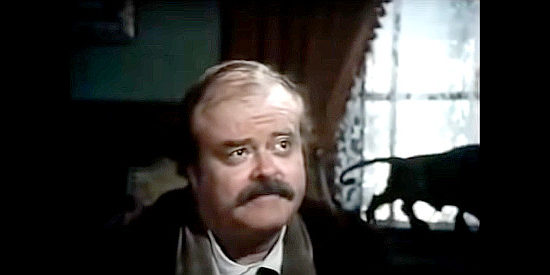
Pat McCormick as John Noble, the absentee cattleman looking for someone to solve rustling problems in Mr. Horn (1979)
